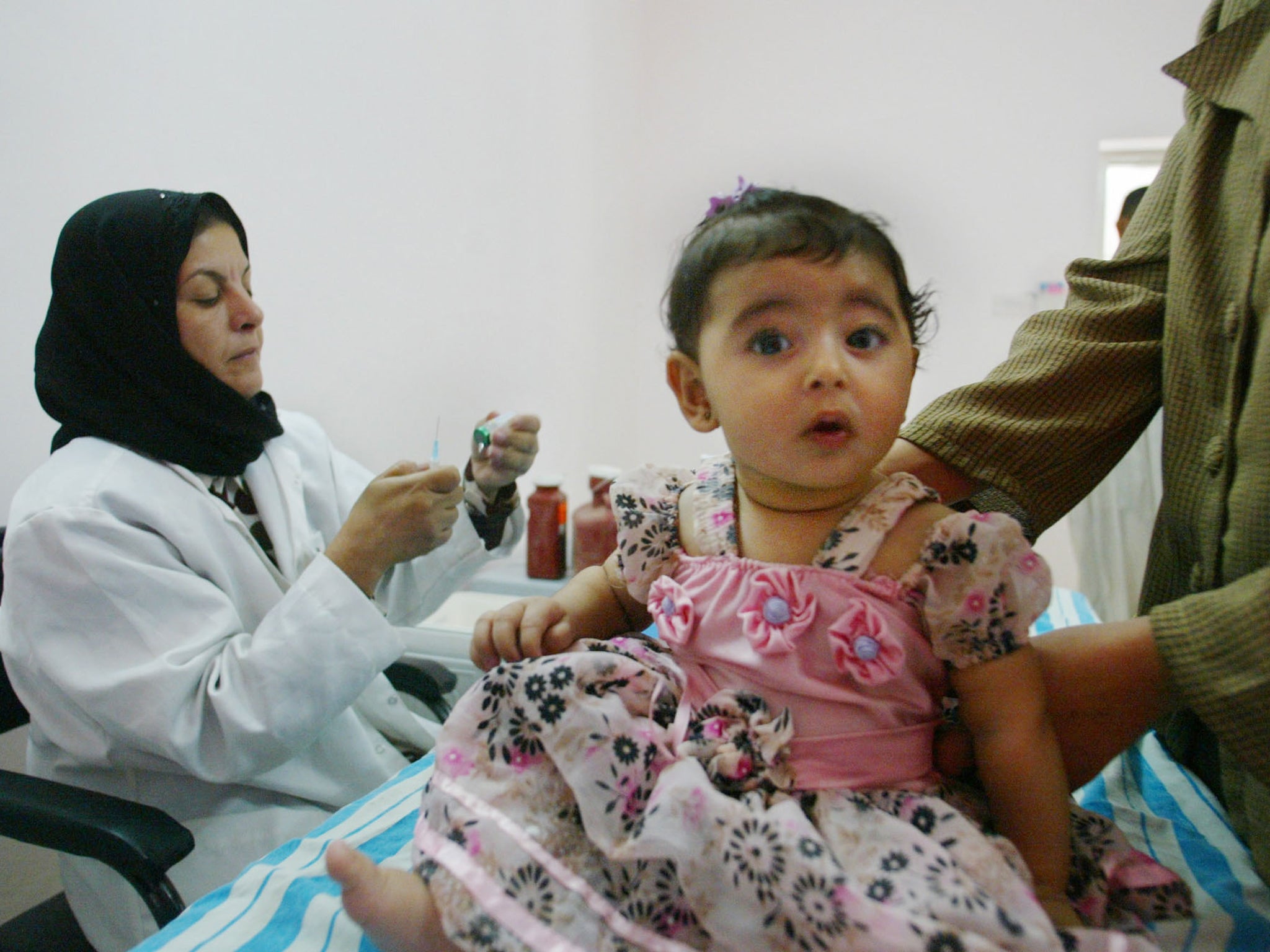Diphtheria threatens to re-emerge as major global threat as it evolves antimicrobial resistance
The disease is highly contagious and sometimes even fatal

Your support helps us to tell the story
From reproductive rights to climate change to Big Tech, The Independent is on the ground when the story is developing. Whether it's investigating the financials of Elon Musk's pro-Trump PAC or producing our latest documentary, 'The A Word', which shines a light on the American women fighting for reproductive rights, we know how important it is to parse out the facts from the messaging.
At such a critical moment in US history, we need reporters on the ground. Your donation allows us to keep sending journalists to speak to both sides of the story.
The Independent is trusted by Americans across the entire political spectrum. And unlike many other quality news outlets, we choose not to lock Americans out of our reporting and analysis with paywalls. We believe quality journalism should be available to everyone, paid for by those who can afford it.
Your support makes all the difference.Diphtheria, a potentially serious but currently easily preventable infection, is evolving to become resistant to antibiotics and could even render existing vaccines ineffective, scientists have warned.
The impact of the coronaviruspandemic on diphtheria vaccination schedules as well as a rise in the number of infections carries the risk of the disease becoming a major global threat.
Diphtheria is a highly contagious disease which affects the nose, throat and occasionally the skin. It can lead to breathing difficulties, heart failure and paralysis, and if left untreated can sometimes be life-threatening.
In the UK and elsewhere, babies are vaccinated against the infection, however in low to middle-income countries, there are sporadic outbreaks of infections in unvaccinated and partially vaccinated communities.
In 2018, more than double the number of cases were reported worldwide compared to the yearly average for 1996 to 2017.
In the study published on Monday, researchers from the UK and India – led by scientists at the University of Cambridge – used genomics to map infections, including a subset from India, where over half of the globally reported cases occurred in 2018.
The disease is primarily caused by the Corynebacterium diphtheriae bacterium and spread through coughs, sneezes and close contact with someone infected.
Analysing the genomes of 61 bacteria isolated from patients and combining these with 441 publicly available genomes, the scientists built a phylogenetic genetic “family tree” to see how the infections are related and spread. They also used this information to assess the presence of antimicrobial resistance (AMR) genes and assess toxin variation.
The researchers found clusters of genetically similar bacteria isolated from multiple continents, most commonly Asia and Europe, indicating the bacteria causing the infection has been among the human population for at least over a century.
The study also found 18 different variants of diphtheria toxin, the main disease-causing component, which the vaccine targets. The presence of these variants have the potential to change the structure of the toxin and reduce the efficacy of vaccines.
Professor Gordon Dougan from the Cambridge Institute of Therapeutic Immunology and Infectious Disease (CITIID) said: “The diphtheria vaccine is designed to neutralise the toxin, so any genetic variants that change the toxin’s structure could have an impact on how effective the vaccine is.
“While our data doesn’t suggest the currently used vaccine will be ineffective, the fact that we are seeing an ever-increasing diversity of tox variants suggests that the vaccine, and treatments that target the toxin, need to be appraised on a regular basis."
Erythromycin and penicillin are the traditionally recommended antibiotics for treating early confirmed cases of diphtheria, as well as several different classes of antibiotic. The study also identified a number of variants resistant to six of these classes.
Dr Pankaj Bhatnagar, from the World Health Organisation country office for India said: "AMR has rarely been considered as a major problem in the treatment of diphtheria, but in some parts of the world, the bacterial genomes are acquiring resistance to numerous classes of antibiotics.”
Dr Bhatnagar added: “There are likely to be a number of reasons to this, including exposure of the bacteria to antibiotics in their environment or in asymptomatic patients being treated against other infections."
The team pointed to the pandemic’s negative impact on childhood vaccination schedules around the world and emphasised how important it is to understand how diphtheria is evolving and spreading.
Dr Ankur Mutreja, of CITIID, said: "Genome sequencing gives us a powerful tool for observing this in real time, allowing public health agencies to take action before it’s too late.
"We mustn’t take our eye off the ball with diphtheria, otherwise we risk it becoming a major global threat again, potentially in a modified, better adapted, form,” he added.





Join our commenting forum
Join thought-provoking conversations, follow other Independent readers and see their replies
Comments